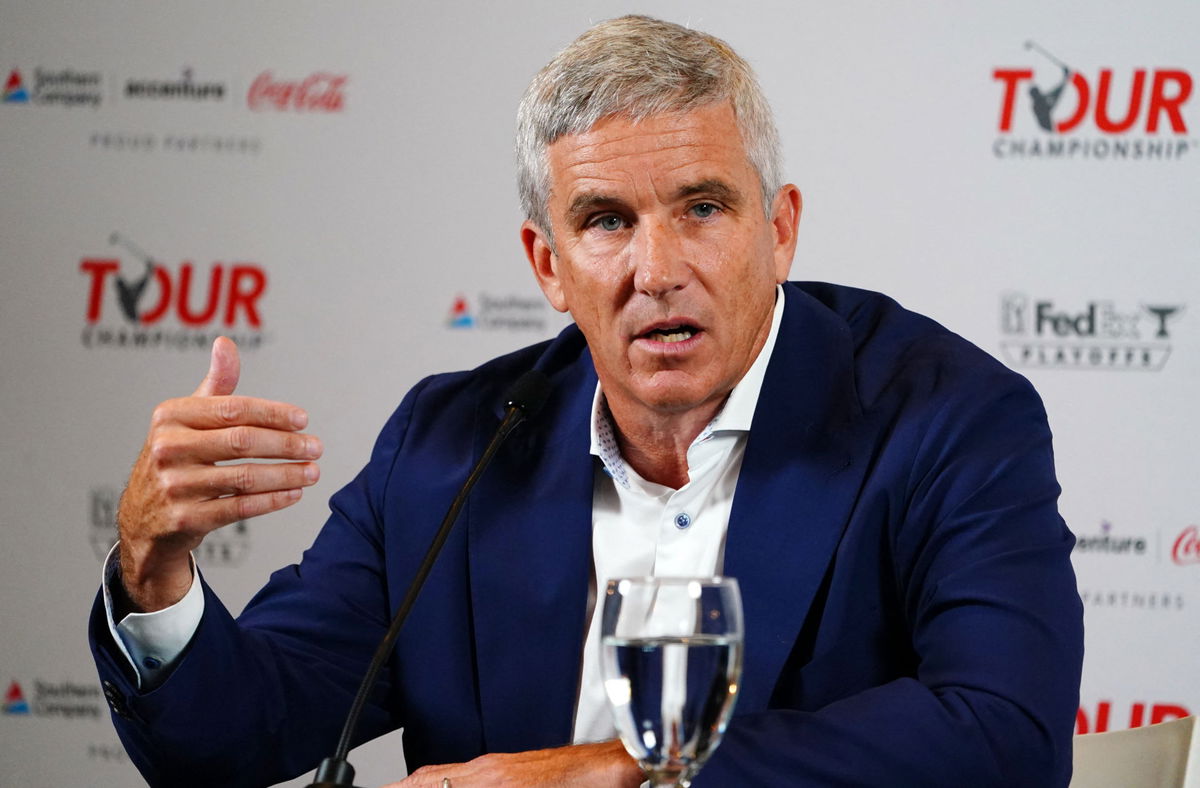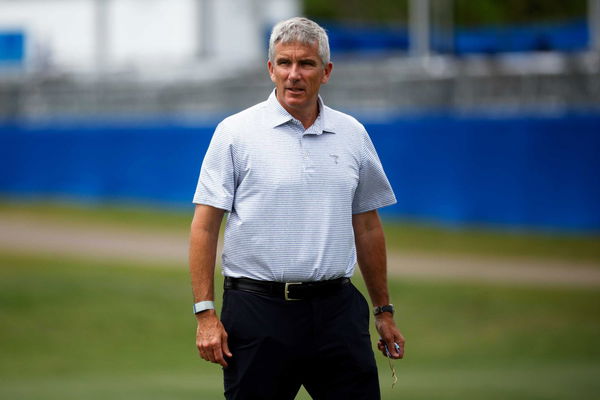



A mixed bag of hope and caution. That’s how Harry Higgs describes the PGA Tour’s $3 billion partnership with Strategic Sports Group. The former Player Director listened with interest to what Jay Monahan had to say about players’ equity. Higgs sounds cautiously optimistic.
Watch What’s Trending Now!
“I think it’s a huge positive. But then I have some worries too, because I have fancy friends who do private equity, and their whole deal is they buy a portion or a whole company. They make it run more efficiently and create tons of revenue off that investment, or create enough revenue to then turn around and sell that investment. These guys all operate the same. So it’s a little worrisome, without any details.”
ROI for fans and investors in golf has become a non-negotiable for the future of the PGA Tour. We're live at Pebble, diving into the deal with the SSG and what it means for golf.https://t.co/PuIv1COfqN pic.twitter.com/IIhtnTyRi0
— No Laying Up (@NoLayingUp) January 31, 2024
Per the announcement, players will receive $750 million in grants. A Player Director on condition of anonymity told NBC’s Rex Hoggard that a large chunk of that will head toward the top 36 players based on career achievements, performance, and a bunch of other factors. Higgs hopes that SSG creates a “whole bunch of new revenue” that not only benefits him in the future but also helps give back to the players.
The new revenue stream is necessary because Higgs knows for sure that “sponsors are pi**ed. Host organizations are pi**ed.” The Tour has already lost Honda, a partner of 42 years. Furthermore, Wells Fargo and Farmers Insurance will also leave after their original contracts end. Webb Simpson, a sitting board member, said that perhaps a few more sponsors will also leave this year as Monahan’s demands keep increasing in a bid to outmatch LIV Golf purses.
Organizers, too, have already sounded alarm bells after the PGA Tour announced a new funding model, set to take effect in 2025, whereby the hosts have to put up additional fees for the increased tournament purses. Moreover, Monahan & Co. have also asked hosts to divert a part of the revenue to Ponte Vedra. Organizers are worried that it will take away a significant chunk of the money going to charities. So, Higgs believes the Tour needs to build up a sustainable model.

Getty
AVONDALE, LOUISIANA – APRIL 20: PGA TOUR Commissioner Jay Monahan looks on during a pro-am prior to the Zurich Classic of New Orleans at TPC Louisiana on April 20, 2022 in Avondale, Louisiana. (Photo by Chris Graythen/Getty Images)
“We’re years away from it, but it would be nice to have a product that sells itself. We now have a backing that will allow us to do that,” said the 32-year-old to Sports Illustrated. A sustainable business model is an absolute necessity, considering the dire situation many tournament hosts are in.
PGA Tour hosts are financially struggling
Friends of Hawaii Charities, the organizer of the Sony Open, has donated around $24 million to charities since 1998. Suddenly, it has become harder to continue this as the Tour floated its new revenue model. “If all the charitable giving in the future rests on the host organizations without some PGA Tour subsidies in certain areas to help assist us with charity, then yeah, it could definitely have an impact on charities,” Ray Stosik, the Tournament Director, told Golf Week.
Watch This Story | 3 Major Takeaways as Viktor Hovland Breaks Silence on Jon Rahm’s $566 Million LIV Golf Move

